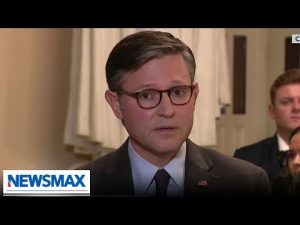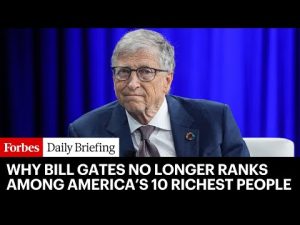In a recent discussion that is stirring up conversations, the Administrator for the Centers for Medicare and Medicaid Services, known as Doctor Oz, shared some significant updates regarding Medicaid’s future. The government is on a mission to clean up fraud, waste, and abuse within the Medicaid system, which is designed to support our most vulnerable citizens. This effort is like giving a shiny new toolbox to a handyman—it’s about making sure the system works for those who truly need help. Doctor Oz emphasized that any kind of theft from Medicare or Medicaid is not just a loss of funds; it’s taking away critical resources from those who depend on them for healthcare. It’s about accountability and putting the right checks and balances in place.
Interestingly, despite the initiative to tighten up Medicaid, there’s no reduction in funding. In fact, the plan involves a hefty increase in Medicaid expenditures—an impressive $200 billion! It’s almost like going through the pantry and realizing that just throwing money in there isn’t the best way to ensure a hearty meal. Instead, the administration plans to spend wisely and strategically, ensuring that every dollar is well spent, particularly since the budget for Medicare and Medicaid is already a whopping $1.7 trillion. That’s twice as much as the defense budget! With that kind of money on the line, even a small mistake can send billions into a black hole.
On the topic of work requirements, Doctor Oz brought up a concept that has found support across the political spectrum, regardless of whether the president is a Democrat or a Republican. The belief is that if the government is providing free health insurance, there should be some expectation for beneficiaries to strive for employment. After all, it’s about inspiring folks to engage with their communities, not just lounging around watching TV for hours on end. The message is clear: people have a desire to contribute and lead fulfilling lives, and the administration’s focus is on helping them achieve that goal through robust support systems.
In addition to these developments, Doctor Oz highlighted a significant initiative aimed at bolstering rural healthcare facilities. With a new plan rolling out, a whopping $50 billion will be funneled into rural hospitals over the next five years. This investment is particularly crucial because many rural hospitals are facing serious financial challenges, with around 40% of them struggling to stay afloat. The goal is to improve healthcare in these communities where life expectancy can be three years less than in their urban counterparts. The hope is to make healthcare access in rural areas as reliable as it is in larger cities, and that starts with the right funding going directly to those who know their communities best—local governors.
Finally, the conversation also touched on the work of the CDC’s vaccine advisory panel, which is looking into vaccine regulations for various diseases, including COVID-19. With the focus on providing families with choices—rather than mandates—Doctor Oz expressed an eagerness to ensure that every mother has the freedom to make informed choices about vaccinations for their children, backed by financial support. It’s about empowering parents rather than restricting their options, leading to a better-informed public on health decisions.
In conclusion, the ongoing reform of Medicaid and the introduction of significant funding for rural health prove that the administration is dedicated to improving healthcare for all Americans, particularly those in need. It’s a balancing act of building a system that prevents abuse while encouraging personal responsibility, all while paying close attention to the ever-important question of health equity across the country. It seems like a busy season ahead for the health administration, but with thoughtful planning and community engagement, there’s hope for a healthier future.







